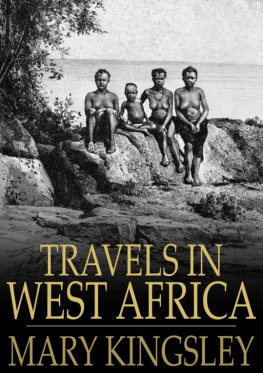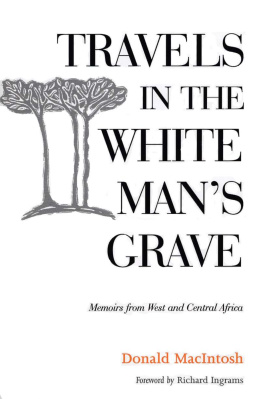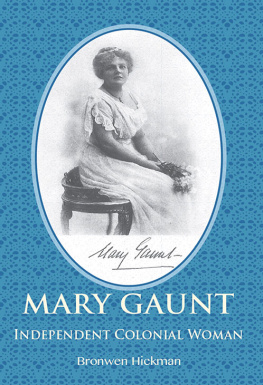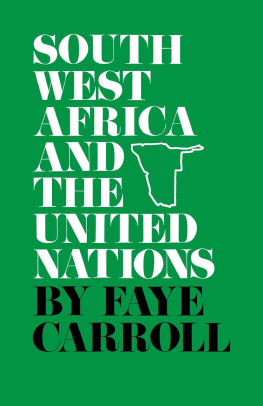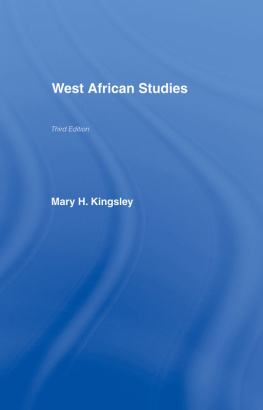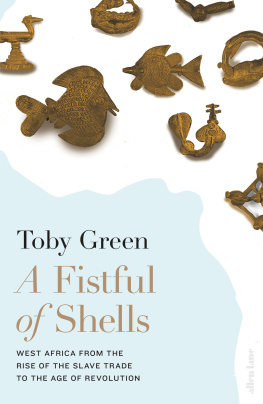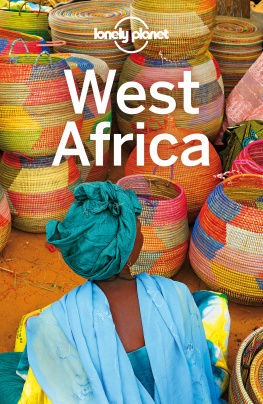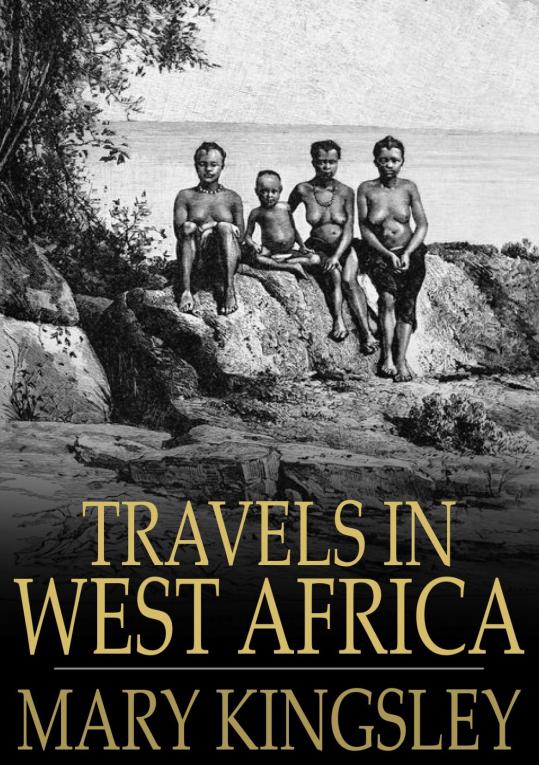TRAVELS IN WEST AFRICA
ABRIDGED EDITION - CONGO FRANCAIS, CORISCO AND CAMEROONS
* * *
MARY KINGSLEY

*
Travels in West Africa
Abridged Edition - Congo Francais, Corisco and Cameroons
First published in 1897.
ISBN 978-1-775411-27-7
2009 THE FLOATING PRESS.
While every effort has been used to ensure the accuracy and reliability of the information contained in The Floating Press edition of this book, The Floating Press does not assume liability or responsibility for any errors or omissions in this book. The Floating Press does not accept responsibility for loss suffered as a result of reliance upon the accuracy or currency of information contained in this book. Do not use while operating a motor vehicle or heavy equipment. Many suitcases look alike.
Visit www.thefloatingpress.com
Contents
*
*
To my brother, C. G. Kingsley this book is dedicated.
Preface
*
TO THE READER.What this book wants is not a simple Preface but anapology, and a very brilliant and convincing one at that.Recognising this fully, and feeling quite incompetent to write sucha masterpiece, I have asked several literary friends to write onefor me, but they have kindly but firmly declined, stating that it isimpossible satisfactorily to apologise for my liberties with LindleyMurray and the Queen's English. I am therefore left to make afeeble apology for this book myself, and all I can personally say isthat it would have been much worse than it is had it not been forDr. Henry Guillemard, who has not edited it, or of course the wholeaffair would have been better, but who has most kindly gone throughthe proof sheets, lassoing prepositions which were straying outsidetheir sentence stockade, taking my eye off the water cask and fixingit on the scenery where I meant it to be, saying firmly in pencil onmargins "No you don't," when I was committing some more than usuallyheinous literary crime, and so on. In cases where his activities inthese things may seem to the reader to have been wanting, I beg tostate that they really were not. It is I who have declined toascend to a higher level of lucidity and correctness of diction thanI am fitted for. I cannot forbear from mentioning my gratitude toMr. George Macmillan for his patience and kindness with me,a merejungle of information on West Africa. Whether you my reader willshare my gratitude is, I fear, doubtful, for if it had not been forhim I should never have attempted to write a book at all, and inorder to excuse his having induced me to try I beg to state that Ihave written only on things that I know from personal experience andvery careful observation. I have never accepted an explanation of anative custom from one person alone, nor have I set down things asbeing prevalent customs from having seen a single instance. I haveendeavoured to give you an honest account of the general state andmanner of life in Lower Guinea and some description of the varioustypes of country there. In reading this section you must makeallowances for my love of this sort of country, with its greatforests and rivers and its animistic-minded inhabitants, and for myability to be more comfortable there than in England. Your superiorculture-instincts may militate against your enjoying West Africa,but if you go there you will find things as I have said.
January, 1897.
Preface to the Abridged Edition of Travels in West Africa
*
When on my return to England from my second sojourn in West Africa,I discovered, to my alarm, that I was, by a freak of fate, the sea-serpent of the season, I published, in order to escape from thisreputation, a very condensed, much abridged version of myexperiences in Lower Guinea; and I thought that I need never explainabout myself or Lower Guinea again. This was one of my errors. Ihave been explaining ever since; and, though not reconciled to sodoing, I am more or less resigned to it, because it gives mepleasure to see that English people can take an interest in thatland they have neglected. Nevertheless, it was a shock to me whenthe publishers said more explanation was required. I am thankful tosay the explanation they required was merely on what plan theabridgment of my first account had been made. I can manage thatexplanation easily. It has been done by removing from it certainsections whole, and leaving the rest very much as it first stood.Of course it would have been better if I had totally reformed andrewritten the book in pellucid English; but that is beyond me, and Ifeel at any rate this book must be better than it was, for there isless of it; and I dimly hope critics will now see that there is asaving grace in disconnectedness, for owing to that disconnectednesswhole chapters have come out without leaving holes.
As for the part that is left in, I have already apologised for itsform, and I cannot help it, for Lower Guinea is like what I havesaid it is. No one who knows it has sent home contradictions of mydescription of it, or its natives, or their manners or customs, andthey have had by now ample time and opportunity. The onlycomplaints I have had regarding my account from my fellow WestCoasters have been that I might have said more. I trust myforbearance will send a thrill of gratitude through readers of the736-page edition.
There is, however, one section that I reprint, regarding which Imust say a few words. It is that on the trade and labour problem inWest Africa, particularly the opinion therein expressed regardingthe liquor traffic. This part has brought down on me much criticismfrom the Missionary Societies and their friends; and I beggratefully to acknowledge the honourable fairness with which thecontroversy has been carried on by the great Wesleyan MethodistMission to the Gold Coast and the Baptist Mission to the Congo. Ithas not ended in our agreement on this point, but it has raised myesteem of Missionary Societies considerably; and anyone interestedin this matter I beg to refer to the Baptist Magazine for October,1897. Therein will be found my answer, and the comments on it by acompetent missionary authority; for the rest of this matter I begall readers of this book to bear in mind that I confine myself tospeaking only of the bit of Africa I knowWest Africa. During thispast summer I attended a meeting at which Sir George Taubman Goldiespoke, and was much struck with the truth of what he said on thedifference of different African regions. He divided Africa intothree zones: firstly, that region where white races could colonisein the true sense of the word, and form a great native-born whitepopulation, namely, the region of the Cape; secondly, a region wherethe white race could colonise, but to a less extentan extentanalogous to that in Indianamely, the highlands of Central EastAfrica and parts of Northern Africa; thirdly, a region where thewhite races cannot colonise in a true sense of the word, namely, theWest African region, and in those regions he pointed out one of themain elements of prosperity and advance is the native Africanpopulation. I am quoting his words from memory, possiblyimperfectly; but there is very little reliable printed matter to goon when dealing with Sir George Taubman Goldie, which is regrettablebecause he himself is an experienced and reliable authority. I amhowever quite convinced that these aforesaid distinct regions areregions that the practical politician dealing with Africa mustrecognise, and keep constantly in mind when attempting to solve themany difficulties that that great continent presents, and sincerelyhope every reader of this work will remember that I am speaking ofthat last zone, the zone wherein white races cannot colonise in atrue sense of the word, but which is nevertheless a vitallyimportant region to a great manufacturing country like England, fortherein are vast undeveloped markets wherein she can sell hermanufactured goods and purchase raw material for her manufactures ata reasonable rate.

